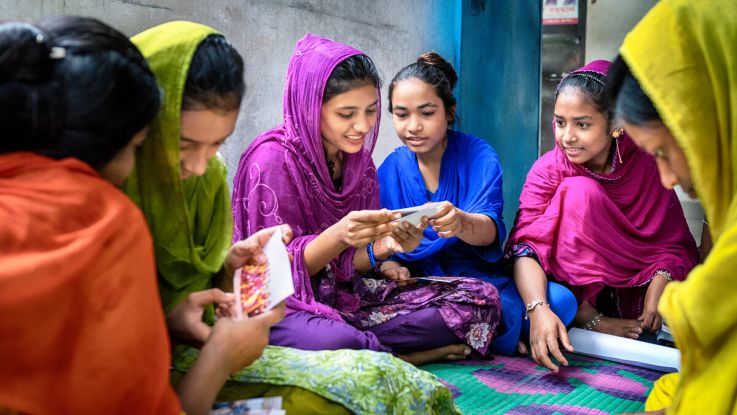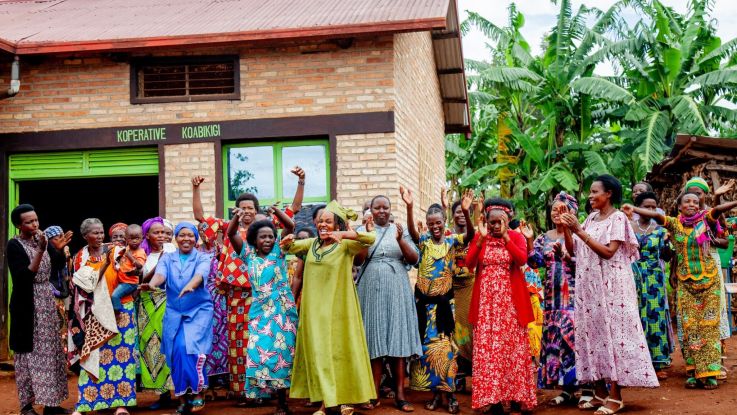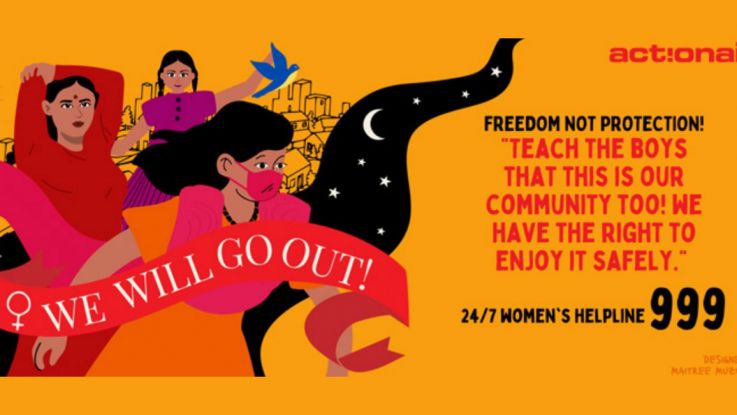Why do we celebrate International Day of the Girl?
30 September 2025
This International Day of the Girl, we spotlight adolescent girls leading change. From Bangladesh to Sierra Leone, they share the barriers they face and the solutions they demand, inspiring action for a fairer future.
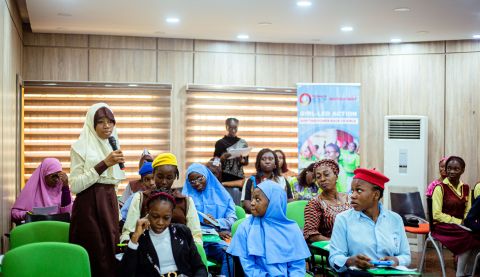
Teenage Network in partnership with Action Aid Nigeria and UK supported a team of adolescent girls in the Federal Capital Territory (FCT) of Nigeria to conduct feminist action participatory research. . Photo: Teenage Network
Every year on International Day of the Girl (11 October), we take a moment to celebrate girls’ voices, confront the barriers that continue to hold them back, and champion their power and resilience.
The realities and issues that adolescent girls face are often overlooked: adolescent girls are frequently forgotten, with the focus usually being with girls (children) or adult women. This is why on this International Day of the Girl we are amplifying their voices, sharing their stories, and calling for the changes they want to see.
Focusing on the ground-breaking research conducted by adolescent girls that ActionAid works with, we are looking at the challenges girls face every day, and the solutions they have asked for.
For this girl led research, ActionAid, alongside women's rights organisations, specifically worked with and listened to girls in Bangladesh, Ethiopia, Nigeria, Indonesia and Sierra Leone.
The girls led every stage of the research project, identifying the issues affecting them, and using their findings to advocate for change. From period stigma to the impact of child marriage, this is what they told us.
Why are girls dealing with mental health issues?
Girls often face mental health problems because they deal with a lot of stress and difficulties. These include poverty, violence, early marriage, isolation from friends, heavy household duties, and pressure to conform to strict gender roles. They may experience violence, or pressure to take care of family members. Sometimes, people don’t believe or listen when girls talk about their problems, which makes them feel ignored and dismissed.
Girls who are forced into child marriages often experience overwhelming responsibilities and isolation. The girl led research found that mental health support for girls is extremely limited, leaving many to cope alone with serious challenges.
Why cant some girls afford period products?
Periods are expensive. Menstrual products are a recurring monthly expense, and for those living in poverty, even small costs add up and can be unaffordable over time. Girls told us that they often have to choose between buying food or period products and end up using unsafe alternatives like old cloth or borrowing money from friends. The shame around periods also makes it harder for girls to ask for help or money from family members.
Hidden expenses like access to clean water, safe sanitation, pain relief, and adequate clothing, are also frequently overlooked. Financial barriers are intensified by trade policies that tax menstrual products as ‘luxuries’ and make basic necessities expensive, disproportionately affecting poorer communities since products are rarely subsidised or provided for free. These challenges reflect deeper systemic issues, economic injustice, underfunded public services, and patriarchal structures that treat menstruation as shameful and prioritise profit over people's health and dignity.
What are the effects of child marriage on girls?
Child marriage has devastating and long-lasting consequences that rob girls of their childhood, future opportunities and freedom. When girls marry, they almost always drop out of school, become isolated from friends and family, and are limited in their ability to make independent choices about their life.
The health impacts can also be severe and life-threatening. Young girls face dangerous complications during pregnancy and childbirth because their bodies aren't fully developed. Beyond physical health, married girls experience overwhelming psychological pressure. They suddenly become responsible for cooking, cleaning, caring for children, elderly relatives, and managing household duties – as children, these are responsibilities they're emotionally and physically unprepared for.
Social isolation is another major consequence. Married girls lose contact with friends and support networks, often living with in-laws who may treat them harshly. Many report feeling lonely, depressed, and trapped in situations they can't escape. The girl-led research shows that girls who marry early often have no control over major decisions in their lives
Why do we need to listen to girls?
Minimisation or denial of girls’ issues refers to when peers, adults and communities don't take girls' problems seriously, or even deny they exist. The research found that sometimes, when girls identified issues like child marriage, violence, and period poverty, many community members said these weren't real problems.
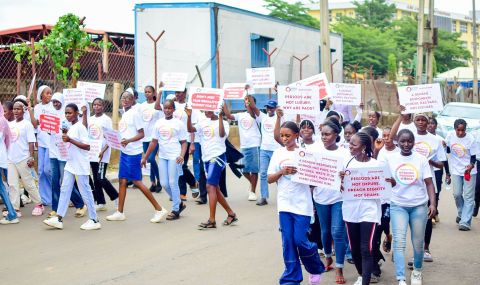
Girls protesting for their rights in Nigeria.
This denial means girls don't get the help they need. When adults don't believe girls' experiences or dismiss them as unimportant, it prevents solutions from being developed and implemented. This leaves girls struggling alone with serious challenges that could be addressed if taken seriously.
Why do these questions matter?
On this Day of the Girl, it’s not enough to simply recognise the challenges, we must commit to the solutions. Every girl deserves the chance to grow up safe, to learn without fear, to speak without stigma, and to live free from violence and discrimination.
Find out more about the girl-led research where ActionAid supports the girl researchers with training and mentorship, but the girls drive the entire process. By putting girls in charge, the research has had a transformative impact on both the participants and their communities.
Read more about our work:
- See the powerful research led by girls: Building power together
- Read the girl-led research on how girls are helping to shift power.
- Learn how lack of access to period products affects girls’ education and health.
- Explore the social and health consequences of child marriage.
- Learn how you can help create safer spaces for girls.
- Discover the unique challenges refugee and displaced girls face.
- Find out how ActionAid celebrates International Day of the Girl.

